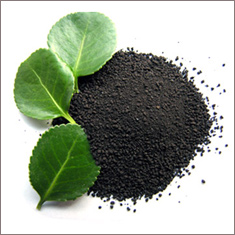Home » Article » Which is Better: Chemical Fertilizer or Organic Fertilizer?
Which is Better: Chemical Fertilizer or Organic
Fertilizer?
By: Bill Weaver
 Chemical vs Organic Fertilizers
Chemical vs Organic Fertilizers
24 September 2010- A popular topic among
the agriculture specialists and home gardeners these days is the furor on organic fertilizer vs. chemical fertilizer. Now each fertilizer certainly has its pros and their cons, but before we delve in deeper into that, let us first make a few definitions.
What is organic fertilizer?
Organic fertilizers are substances containing nutrients derived from the remains or by-product of an organism. Examples of
organic fertilizers are cottonseed meal, blood meal, fish emulsion, and manure and sewage sludge.
Organic fertilizers are naturally rich in nitrogen, phosphorus, and potassium, the three major nutrients needed in plant growth. Organic fertilizers depend on microorganisms found in soil to break them down and release the nutrients.
What is chemical fertilizer?
Chemical fertilizers are synthetically produced plant nutrients from inorganic materials. Because they are artificially made, many
chemical fertilizers contain acids that can be harmful to the soil's population of microorganisms. In this aspect, chemical fertilizers have the potential to stunt plant growth.
Chemical fertilizer vs. organic fertilizer
Fertilizers are created to target soil nutrient deficiency, which is a prevalent problem among home garden owners. One distinct advantage chemical fertilizers have over organic fertilizers is the fact that they contain all three of the major nutrients (nitrogen, phosphorus, and potassium). Organic fertilizers can only either have high content levels of one of these three or have all three nutrients in low levels.
For its part, organic fertilizers are a much cheaper and cost-effective alternative to chemical fertilizers. Any home gardener can create his own brand of organic fertilizer by composting or mixing cow, sheep, or poultry manure with other organic matters. Chemical fertilizers on the other hand will have to be bought from a gardening store or horticulturists.
A noted aspect of organic fertilizer is its slow-release capability. This slow release of nutrients in organic fertilizers can be both beneficial and potentially harmful to plants. Slow release of nutrients means that there is less risk of over-fertilization. However, this could also mean that if the need for immediate supply of nutrients arises, organic fertilizers would not be able to provide the needed supply. In contrast, chemical fertilizers can prove plants with an immediate supply of nutrients when the situation calls for it.
Several chemical fertilizers have high acid content. Acids in chemical fertilizers, like sulfuric acid and hydrochloric acid, lead to high soil acidity which would in turn result in the destruction of nitrogen-fixing bacteria, the microorganism that plays a key role in supplying a growing plant's nitrogen needs.
Plants certainly do not recognize the difference between organic fertilizers and chemical fertilizers. Their tiny root hairs will absorb those microscopic nutrients, regardless of where they come from or how they were manufactured. But even so, with today's growing environmental concerns, some people debate over the wisdom of using chemical fertilizers as a nutrient source.
About the Author
FREE information on Lawn Care -- Every topic is listed! It's FREE! Click here: www.Home-Lawn-Care.info
(ArticlesBase SC #39243)
-Which is Better: Chemical Fertilizer or Organic Fertilizer?
